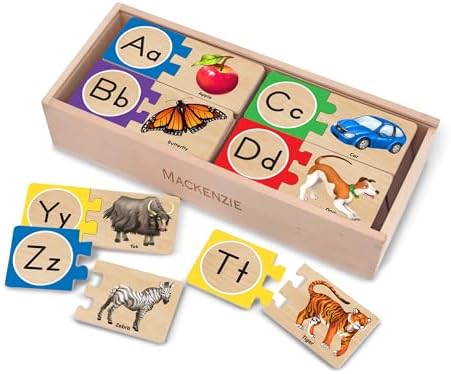Montessori Toys for Toddlers
Discover the magic of Maria Montessori toys. Designed to spark curiosity, Montessori Toys promote hands-on learning. First, they teach focus. Then, they build independence. Each toy supports real-world skills. No batteries. No screens. Just pure, natural play. Montessori toys are made from wood, safe, and eco-friendly. As a result, children learn through touch and movement. From stacking blocks to sensory puzzles, every piece has a purpose. Parents love the simplicity. Kids love the fun. Choose Montessori. Encourage growth. Inspire confidence. Start your child’s journey with Montessori educational toys today. Because learning should be joyful—and meaningful.
In this page:
- Maria Montessori Life
- Maria Montessori Method
- Maria Montessori Education

- 12 pieces geometric shape in 6 colors from Pantone International Standards
- Big knob is screwed for babies to grasp safely and easily,all edges are smoothed and rounded,without any burrs
- Made of natural wood, be sure is sturdy and durable,for longtime fun and play,we don’t use MDF
- Self-Correcting Puzzle: Each puzzle piece shows a capital or lowercase letter, and a labeled image, that only fits with …
- Educational Alphabet Letter Puzzle: Includes 52 wooden puzzle pieces with detailed illustrations, and a sturdy toy stora…
- Open-Ended, Screen-Free Play: Supports letter recognition, vocabulary building, fine motor control, and problem-solving …
- Keep Kids Busy & Entertained Anywhere with Pre-Assembled Montessori Preschool Busy Book For Toddlers Ages 3 And Up! Busy…
- Preschool Readiness Educational Toy That Teaches The Alphabet & More. Build a strong learning foundation and reach cogni…
- Quiet Book That Encourages Learning Through Play. This Kindergarten Learning Activities Book is a fast favorite with ear…
- Multi-Sensory Baby Toy: This baby sensory toy uses 12 kinds of bright colors and textured silicone balls to stimulate ba…
- Silicone Baby Teether: This baby teether is made of high quality soft silicone and ABS plastic, which helps relieve gum …
- Developmental Montessori Toys: Babies will be instantly drawn to this colorful and lightweight infant toy. Impact size d…
- DEVELOPS ESSENTIAL FINE MOTOR SKILLS – Colorful, quills help toddlers strengthen hand muscles, and enhance hand-eye coor…
- GROWS WITH YOUR CHILD – Perfect for ages 18 months and up, this versatile toy evolves from simple play for toddlers to t…
- PROVIDES ENGAGING SENSORY PLAY – The specially designed quills with easy-grip texture captivate children’s attention, en…
- A classic bead maze toy with a “twist”
- Four soft-coated wires twist and turn between two solid wood blocks
- Features 18 multi-shaped wooden beads and three plastic rings to spin and slide; encourages sensory skills, fine motor s…
- [Educational toy]: MINGKIDS baby tries to push the shapes through the elastic bands and perform the sensory shapes. As a…
- 【Safe Material】The educational toy frame made of high quality ABS plastic has rounded corners and is soft. All edges and…
- [6 colourful multi-sensory shape] The six chunky shape blocks are each designed with fascinating textures that will deli…
- The spinning rainbow drum is a classic Montessori material used to enhance tummy time and fine motor skills.
- As your young child starts to explore the world around them they will find this spinning drum fascinating.
- Before baby can sit, he/she will push up and bat the drum to make it spin. When it spins, the colors make a beautiful pa…
- 🌱【Promotes Cognitive Development】: The Montessori Object Permanence Box with Tray and Three Balls is a valuable learning…
- 🌈【Engages Sensory Exploration】: The Montessori Object Permanence Box stimulates sensory exploration through the use of v…
- 👶【Enhances Fine Motor Skills】: This Montessori toy encourages the development of fine motor skills in young children. Wi…
There are an endless amount of montessori toys, so I’ll leave you with a selection of the best brands for you to check…..
Early Life and Education of Maria Montessori
Maria Montessori was born on August 31, 1870, in Chiaravalle, a small town in Italy. She grew up in a progressive household that encouraged her to pursue her interests and education. Her mother, was a trained educator, and her father, was an official in the army. They instilled in her the importance of learning and critical thinking from a young age. Thus, this nurturing environment laid the groundwork for her future achievements and distinctive approach to education.
From an early age, Montessori exhibited a keen interest in books and science, leading her to excel in her studies. In fact, she defied societal expectations at the local technical school, challenging gender norms that limit women to domestic roles. Fueled by determination, she sought higher education despite the formidable gender barriers present in 19th-century Italy.
In 1890, Montessori enrolled in the University of Rome, where she pursued a degree in medicine. This was a groundbreaking choice for women at the time. Her male classmates and professors met her enrollment with considerable skepticism and resistance. However, she persevered, demonstrating exceptional dedication and intellect. She became the first woman to graduate as a physician in Italy in 1896.
Montessori studied medicine, gaining understanding of human development and forming a strong bond with marginalized children. This inspired her innovative teaching philosophy centered on independence and respect for natural child development.
What is The Montessori Method
Maria Montessori’s journey to create her famous educational philosophy started at a psychiatric hospital in Rome. Working with children with disabilities, she discovered their remarkable abilities. Despite being underestimated, these children showed a strong capacity for learning when given the right environment. Instead of seeing them as lacking, Montessori saw their potential and developed a method to empower all learners. Her early experiences reinforced her belief that education should be tailored to each child, focusing on their interests and development. Traditional approaches often failed to meet individual needs, hindering curiosity and learning.
Montessori’s philosophy emphasized experiential learning and a prepared environment to facilitate growth. In 1907, she opened the first “Casa dei Bambini” in Rome. The “Casa dei Bambini” was unique, giving children the freedom to choose activities and fostering independence and self-discipline. Montessori’s innovative environment was organized to support active engagement. Materials were child-sized and approachable, encouraging exploration and collaboration. Her method allowed children to progress at their own pace, respecting their unique development. These principles transformed education, revealing the potential in every child.
Global Expansion of Montessori Education
The Montessori method, developed by Dr. Maria Montessori, has seen significant global expansion since its inception in the early 20th century. It has influenced educational practices in many countries worldwide. The first Montessori school opened in 1907 in San Lorenzo, Rome, laying the foundation for a global movement. Today, there are thousands of Montessori schools worldwide, adapting the philosophy to their unique cultural contexts. One important aspect of the global expansion is the establishment of training programs for educators. These programs ensure that teachers are well-trained in Montessori principles and practices.
Organizations like the Association Montessori Internationale (AMI) and the American Montessori Society (AMS) provide accredited training, ensuring the authenticity of the Montessori method. These programs exist in many countries, enabling effective implementation of Montessori techniques in diverse learning environments. Dr. Montessori’s writings and lectures have had a significant impact. Her books, such as “The Montessori Method” and “The Absorbent Mind,” have been translated into multiple languages, making her teachings accessible globally.
Her participation in international congresses and seminars further promoted the Montessori philosophy. As a result, Montessori education has resonated with parents and educators worldwide, leading to its adoption in private and public education systems.
Montessori’s Enduring Influence in Education
Maria Montessori’s approach to education has had a lasting impact on education worldwide. She believed in child-centered learning, tailoring education to each individual’s needs. This has transformed teaching practices today. Montessori’s philosophy emphasizes autonomy, respect for individuality, and freedom of choice, which are still important in modern education. Autonomy is a key part of Montessori’s method and promotes independence and self-directed learning.
Educators now recognize the importance of empowering students to take responsibility for their learning. By creating an environment that encourages exploration and decision-making, teachers can develop critical thinking and problem-solving skills. Respect for individuality is also important in today’s education. Every child has unique strengths, interests, and learning styles. Recognizing this diversity fosters an inclusive environment where all students can thrive.
Many educational frameworks now incorporate differentiated instruction strategies inspired by Montessori’s approach. Freedom of choice is another significant aspect of contemporary education. Allowing students to choose their learning activities promotes engagement and motivation. This approach prepares students for real-world decision-making. Schools worldwide are implementing flexible learning spaces and curricula that prioritize student choice. In conclusion, Maria Montessori’s educational principles continue to influence teaching practices and educational systems globally. The focus on autonomy, respect for individuality, and freedom of choice is still relevant in preparing future generations for an increasingly complex society.












